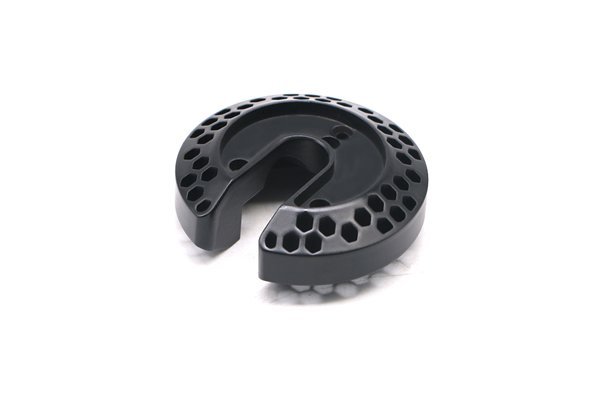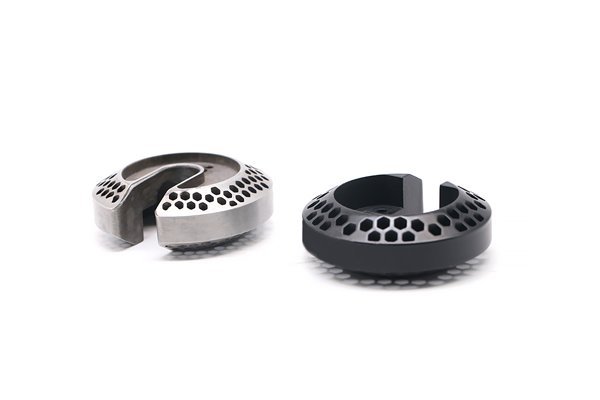Did you know that the global CNC machining market is projected to reach USD 100 billion by 2025? With more and more industries adopting precision manufacturing techniques, CNC machining is becoming essential for producing high-quality, heavy-duty parts. If you’re in the manufacturing business or are simply interested in how modern tools can significantly affect production efficiency and effectiveness, this blog is for you.
In this comprehensive exploration, we will delve into the numerous benefits of CNC machining services specifically tailored for heavy-duty parts. By the end, you’ll have a solid understanding of how CNC machining can solve various industry problems and provide invaluable solutions.
CNC, or Computer Numerical Control, machining utilizes computer software to control machine tools and automate manufacturing processes, from drilling to milling. This technology revolutionized the manufacturing landscape by providing high precision, efficiency, and repeatability.
1.1 The Core Process
The core process involves creating a 3D model of a part using CAD (Computer-Aided Design) software, converting it into a CNC program, and then feeding that program into the CNC machine. This process makes it possible to manufacture complex parts with intricate details that would be nearly impossible to achieve through manual machining.
Advantages of CNC Machining Over Traditional Methods:
Heavy-duty parts are components designed to withstand considerable stress and load. These parts are essential in industries such as:
The diverse application of heavy-duty parts underscores the need for precision and durability, making CNC machining an ideal solution.
3.1 Enhanced Precision
One of the primary advantages of CNC machining is the level of precision it offers. In industries where tolerances can mean the difference between success and failure, CNC machining ensures that heavy-duty parts are manufactured to meet or exceed specifications. The unerring accuracy of CNC machines reduces the need for secondary operations, thereby saving time and costs.

3.2 Scalability of Production
CNC machines are designed to handle both small and large production runs effortlessly. For companies seeking to scale their operations, CNC machining can accommodate increased workloads without compromising quality, making it an ideal solution for businesses that anticipate growth.
3.3 Versatility in Material Utilization
Another significant benefit is the range of materials that can be machined. CNC technology is not limited to metals; it can work with a variety of materials, including plastics, wood, and composites. For heavy-duty applications, this means being able to choose the right material based on specific use cases without changing the manufacturing process.
Though the initial investment in CNC technology can be high, the long-term cost savings are profound. Reduced material waste, lower labor costs, and an increase in production speed contribute to overall efficiency and profitability. Businesses investing in CNC machining for heavy-duty parts can often experience a shortened return on investment (ROI) period.
When compared to traditional machining, CNC machining offers enhanced workplace safety. The majority of the machining processes are automated, which means less human interaction with hazardous machinery. Furthermore, the reduced physical demands on workers lead to improved ergonomics in the workplace.
The automation of the CNC machining process produces parts that are reliable and consistent in quality. Heavy-duty applications demand components that perform reliably under extreme conditions. CNC machining serves to eliminate the inconsistencies that may arise from manual processes.
CNC machining enables rapid prototyping, allowing businesses to test designs quickly before committing to large production runs. This swift validation process allows for quicker adjustments, reduces time to market, and contributes to overall agility in the production process.
Despite its advantages, businesses should remain aware of certain challenges associated with CNC machining for heavy-duty parts:
As we’ve explored through this in-depth examination, CNC machining services for heavy-duty parts offer significant benefits, including enhanced precision, scalability, versatility, and cost-effectiveness. By embracing CNC machining, companies not only improve the quality and performance of their products but also position themselves for future growth and flexibility in an increasingly competitive market.
The importance of integrating CNC machining services cannot be overstated. In a world where efficiency and quality are paramount, CNC technology stands at the forefront of revolutionizing the manufacturing sector. As businesses continue to evolve, these advanced machining services will remain a crucial element of success.
Whether you are considering switching to CNC machining for your heavy-duty part needs or are simply exploring the options, the potential benefits are worth reflecting on. Remember that successful manufacturing starts with understanding and selecting the right processes for your specific needs. This blog serves as a reminder that CNC machining is not just a tool; it’s a pathway to industry-leading excellence.






